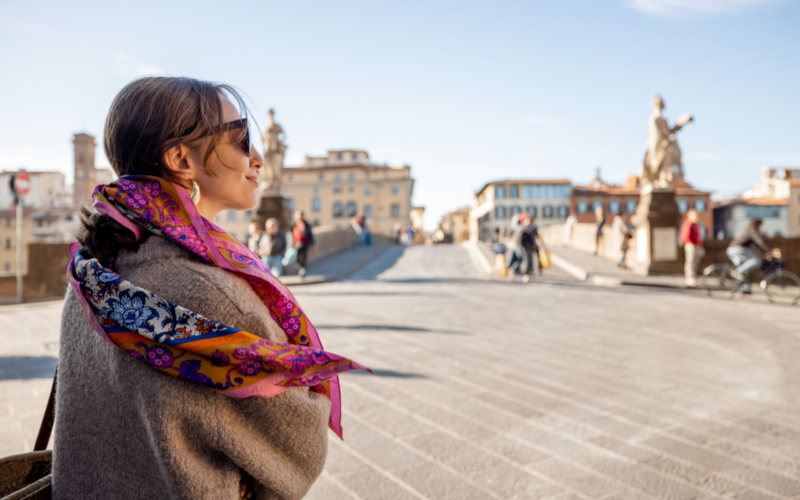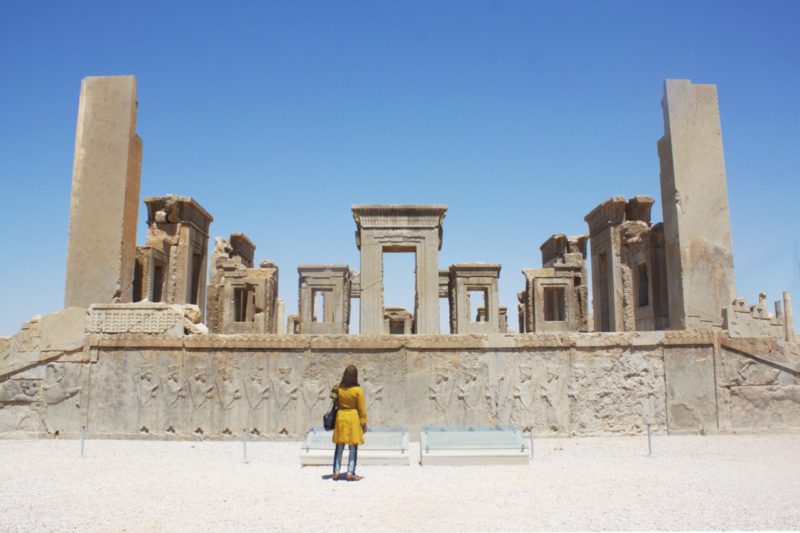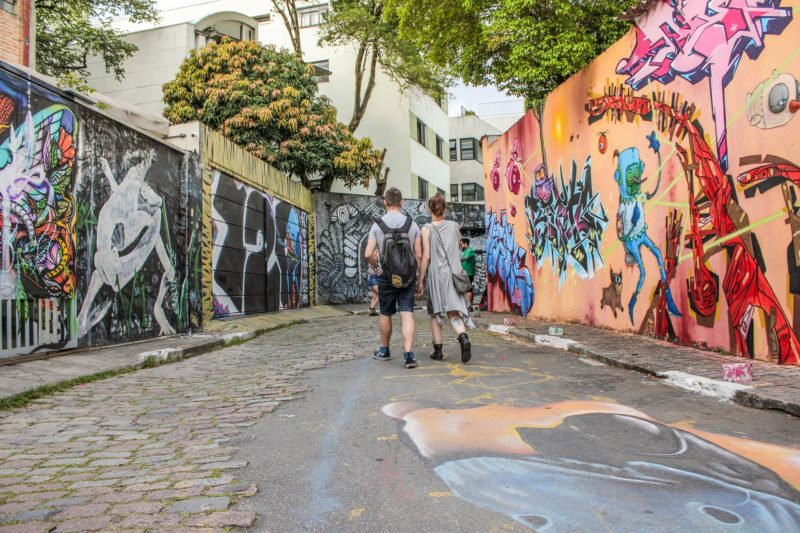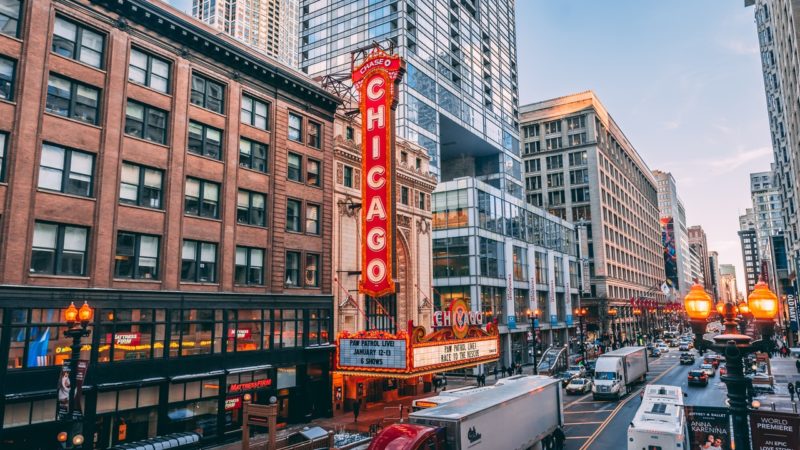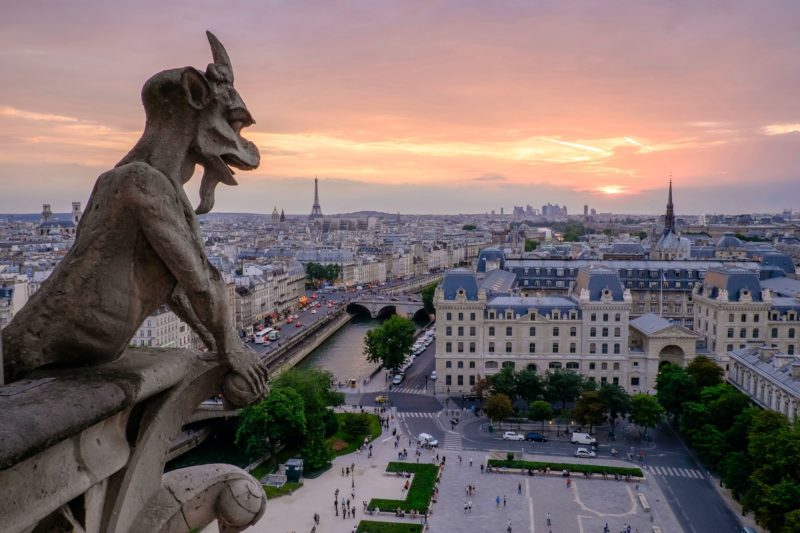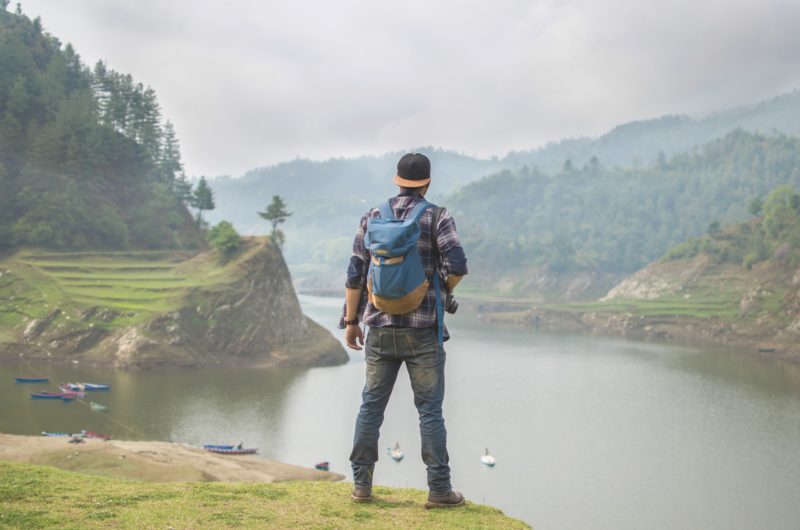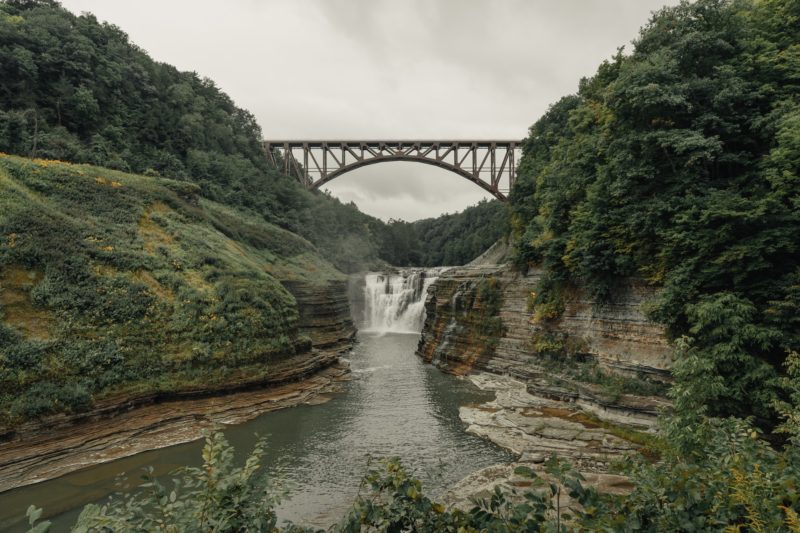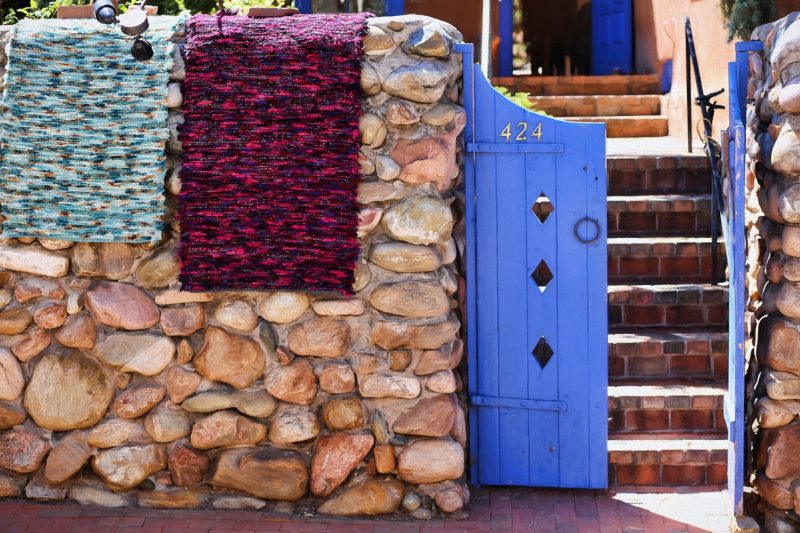Cape Town, South Africa evokes emotion, intrigue and awe even at its mention. Known by locals fondly as the “mother city,” Cape Town is as diverse and contrasting as its vibrant and conflict-ridden history. When I arrived in January 2019, the start of their summer, I was immediately struck by the scenery, the people, and the never ending list of things to do in Cape Town. Equally overwhelmed and excited, I left Cape Town two months later with memories that will forever leave an impact.
Cape Town is hands down the most beautiful coastal city I’ve ever been to – and I’ve been to a lot. The Cape is surrounded by aqua blue water, white, rocky sand, and amber mountains that loom over everything. Wherever you are in the city, a stunning view is only a moment away.
Cape Town’s beauty has always attracted visitors, but in the last decade, popularity with international tourists has skyrocketed, drawing in hoards of digital nomads and travelers. My instagram feed constantly features photos of the more notable things to do in Cape Town like the penguins on Boulders Beach, the farmers’ markets that put LA to shame, and the superior sunsets at Camps Bay.

Visiting Cape Town: A History That Cannot Be Ignored
While the beauty of Cape Town is unforgettable, what had an even greater impact on me is the city’s history. South Africa’s fifty year system of institutionalized racial segregation, know as Apartheid, only ended historically speaking a short time ago, in the early 1990s. The colonization that is responsible for the creation of modern day Cape Town, and the enslavement and continuous oppression of its indigenous people, cannot be ignored.
Cape Town remains largely segregated by economic class. South Africa is the world’s most economically unequal country, and the class divide disproportionately affects Black and Brown Capetonians. For every gorgeous and affluent neighborhood there is an impoverished township just around the corner. This stark contrast can be found throughout the city, and it is a constant reminder of Cape Town’s very recent painful history.
I couldn’t help but notice that the majority of the travelers I saw in Cape Town were White. I also noticed that the most popular businesses and things to do in Cape Town were either owned, or frequented primarily by White South Africans. The story Cape Town visitors hear is largely white washed. It shows the most picturesque side of life in Cape Town that is primarily enjoyed by White South Africans, and affluent tourists alike.
As a traveler, it is easy to remain ignorant of Cape Town’s history and politics. You could choose to see one privileged side of Cape Town but what makes Cape Town unique is its diverse cultures, the history of those cultures and the people who’ve persevered.
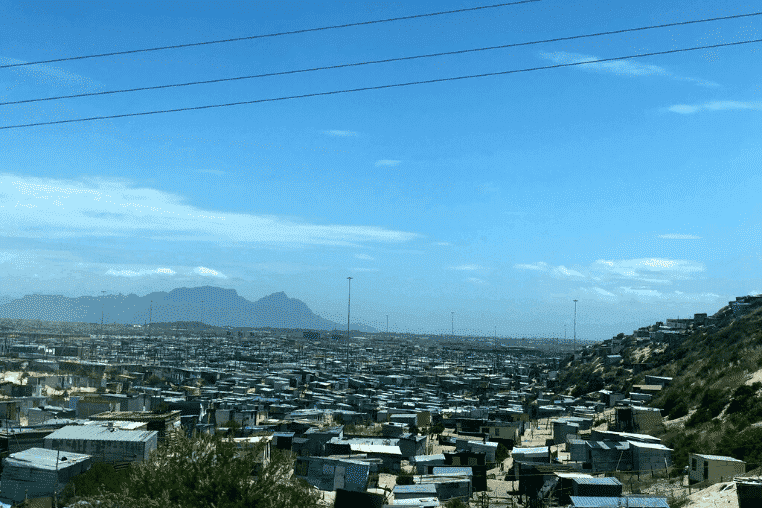
Sustainable Tourism in Cape Town
Nothing showcases the creativity and perseverance of Capetonians better than Lelapa, a restaurant inside Langa, one of Cape Town’s oldest townships. Townships were created during Apartheid to segregrate Black and Brown communities from White communities. While apartheid may have officially ended, the townships still exist, and are largely populated by Black communities. Most people who live in the townships don’t have ideal living conditions. Some homes don’t have running water or electricity, and some don’t have roofs.
After driving past townships for two weeks, never entering, a friend invited a group of us to a dinner at Lelapa. Lelapa was founded in 1999 by Sheila Mahloane and her daughter, Monica, only five years after Apartheid legally fell. After watching the tourist busses pass by their home every day en route to Cape Town’s legendary wineries, Sheila had an idea. She decided to turn her home into a restaurant. Since there was nothing around, she figured it would draw in hungry tourists while giving them a chance to see another side to Cape Town.
Her business was a hit. Sheila and Monica went from running Lelapa out of their one bedroom home to building three connecting homes to accommodate their guests. More than just a meal, throughout the dinner you’ll meet Sheila, the wonderful cooks, and listen to a local Marimba band play. All the food is traditional, home cooked and served buffet style. I will never forget that meal, especially the Malva pudding and the wine. Sheila strives to give an authentic taste of township cuisine and culture and she does just that.
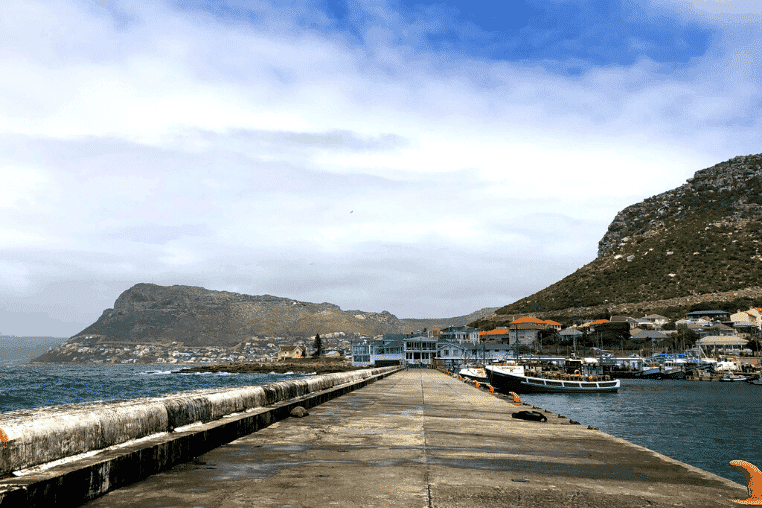
Experiences like these are what make Cape Town such a special place to visit. There are so many things to do in Cape Town, but many of them only support one group of people- White and wealthy South Africans. As a responsible and sustainable tourist, you will have a richer experience and greater impact if you choose to support businesses and activities provided by a range of local people.
Below I’ve included some of my favorite things to do in Cape Town that allow you to experience different sides of the city, and understand its history. These activities are also sustainable and/or eco-friendly.
Sustainable Things to do in Cape Town:
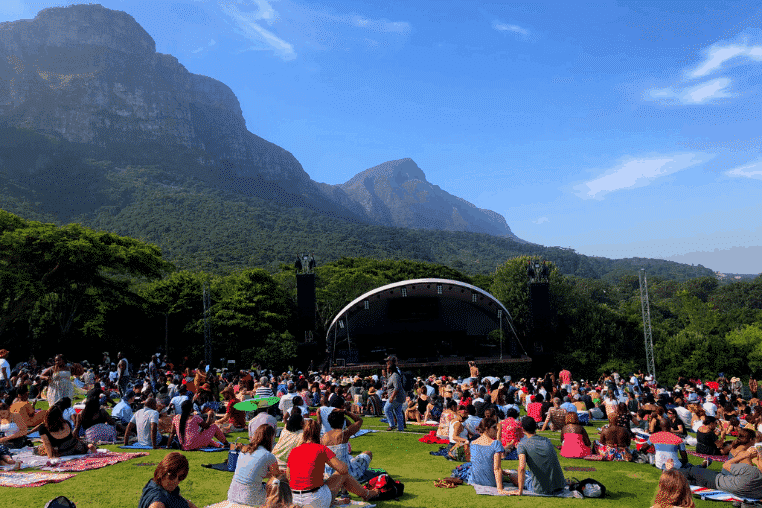
- Take a tour of Robben Island. The tours are run by former prisoners who share their horrific experience. It’s jarring to bear witness to their history, and to see where Nelson Mandela and many freedom fighters were imprisoned. It’s also incredible to see how many former prisoners have since rehabilitated the island. Out of all the things to do in Cape Town, this is a must.
- Visit District Six Museum and Bo-Kaap to continue your education on apartheid and how the country overcame it.
- Shop at the numerous local markets to support local businesses and to try the best food. My favorites are Greenmarket Square, Neighbourgoods, Old Biscuit Mill, Blue Bird, Oranjezicht City Farm and Cape Point Vineyards.
- Support businesses in townships, like Lelapa.
- Spend time outside of the affluent neighborhoods of Camps Bay and Sea Point. Support other neighborhoods throughout the Cape like Woodstock, Kalk Bay, Fish Hoek or Muizenberg, that don’t see as many tourists.
- Picnic at Kirstenbosch Botanical Gardens. These gardens are beautiful and wonderfully preserved. During the summer months you can see an outdoor concert weekly, where incredible local musicians play.
- Experience a local Braai. Some townships put on braais and festivals open to the public, but there are also locally run experiences that allow you to have a traditional South African Braai. Even better? If you make some friends while in town, they may just invite you over for one.
- Hiking is one of the best things to do in Cape Town. There are so many beautiful hikes centrally located. Some of the prettiest and most accessible ones include Table Mountain, Lion’s Head, and Devil’s Peak.
- Explore the beautiful beaches throughout Cape Town, especially on the south side. My favorites are Hout Bay, Boulders, and Muizenberg Beach.
- Have a sundowner at Cape Point Vineyards, one of the coolest food and artisan markets. Fish Hoek offers what I consider the best sunset in Cape Town. Purchase some food and wine and enjoy the view.
- Conserve your water! Cape Town has severe water shortages, so please follow the water conservation requirements while visiting.
- Shop at the artisan boutiques in Kalk Bay.
- When you’re not eating at food markets or family run spots, try one of the numerous farm to table restaurants. The most popular is Test Kitchen for their water conservation efforts and fresh fare.
- Support locally owned, sustainable wineries. Many wineries have specific conservation efforts and focus on organic and low waste wine.
- Buy your gifts at The Watershed, on V & A Waterfront. This is one of the more touristy spots in Cape Town, but the Watershed supplies goods from exclusively local South African designers.
- Visit the Zeitz Museum of Contemporary Art Africa. It’s the only museum in the world that features only African artists.
The Street Art Scene in Cape Town
Cape Town’s vibrant street art scene showcases local talent and tells the stories of the city’s history and culture. Neighborhoods like Woodstock are adorned with colorful murals that reflect the city’s diverse communities. Join a guided street art tour to learn about the artists, their inspirations, and the messages behind their work. Alternatively, explore the area independently while supporting local businesses and cafes along the way.
Cape Town’s Culinary Diversity
The diverse food culture in Cape Town offers a rich culinary experience, highlighting lesser-known local delicacies and food experiences. Cape Malay cuisine, Gatsby sandwiches, and bunny chow are just a few examples of the city’s unique dishes. Visit Bo-Kaap, a neighborhood known for its brightly colored houses and Cape Malay heritage, to learn about the history and try traditional dishes. Attend a cooking course or join a food tour to fully appreciate the flavors of Cape Town’s culinary landscape.
Eco-Friendly Accommodation Options in Cape Town
Choosing sustainable accommodation in Cape Town can contribute to a responsible travel experience. Many hotels, guesthouses, and eco-lodges prioritize environmentally-friendly practices and support local communities. Look for establishments with green certifications, such as Fair Trade Tourism or Green Key, that demonstrate a commitment to sustainability. These accommodations often have water-saving measures, energy-efficient systems, and source local, organic ingredients for their restaurants.
Cape Town’s Hidden Gems
Explore lesser-known attractions and activities that showcase the city’s rich history, natural beauty, and diverse culture, away from the usual tourist hotspots. For example, visit the Irma Stern Museum, which celebrates the life and work of one of South Africa’s most famous artists. Or, explore the South African Astronomical Observatory, where you can learn about the country’s role in astronomy and enjoy stargazing sessions. These hidden gems offer unique insights into the many facets of Cape Town.
Sustainable Transportation in Cape Town
Navigating Cape Town using public transportation, such as the MyCiTi bus system and Metrorail, can help reduce your carbon footprint during your visit. Additionally, explore the city using eco-friendly methods like walking tours and bicycle rentals. Join a guided tour or rent a bike to explore the city’s many cycle paths, such as the Sea Point Promenade or the Constantia Greenbelt. This not only provides a sustainable way to see the city but also encourages a healthy, active lifestyle.
Cape Town’s Green Spaces
Cape Town offers numerous parks, nature reserves, and green spaces that provide a peaceful retreat from urban life. Kirstenbosch Botanical Gardens is a beautiful, well-preserved space where you can enjoy a picnic or attend a summer outdoor concert featuring local musicians. Other green spaces worth exploring include the Rondevlei Nature Reserve, Silvermine Nature Reserve, and Green Point Urban Park. These areas showcase Cape Town’s commitment to preserving and protecting its natural environment.
Responsible Wildlife Encounters Near Cape Town
Engage with Cape Town’s diverse wildlife in ethical and sustainable ways by participating in bird-watching, whale watching, and shark cage diving experiences offered by responsible tour operators. Support conservation initiatives, such as the Two Oceans Aquarium and the South African Foundation for the Conservation of Coastal Birds (SANCCOB), which are dedicated to preserving Cape Town’s unique marine and coastal ecosystems. By choosing responsible wildlife encounters, you can contribute to the conservation of these incredible species and their habitats.
Sustainable Shopping in Cape Town
Support local artisans and small businesses by seeking out locally-made, eco-friendly, and fair-trade products during your visit to Cape Town. Visit The Watershed on V&A Waterfront, which exclusively features goods from local South African designers, or explore the artisan boutiques in Kalk Bay. Check out the numerous local markets, such as Greenmarket Square, Neighbourgoods, Old Biscuit Mill, Blue Bird, Oranjezicht City Farm, and Cape Point Vineyards, where you can find unique souvenirs, sample delicious food, and support local businesses. By shopping sustainably, you can contribute to Cape Town’s local economy and promote responsible tourism practices.










